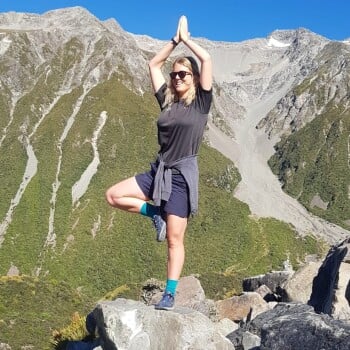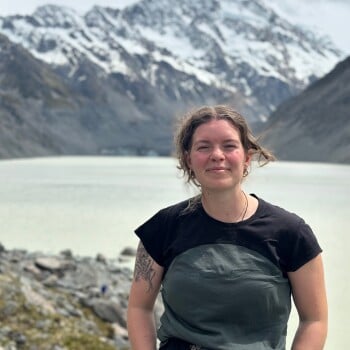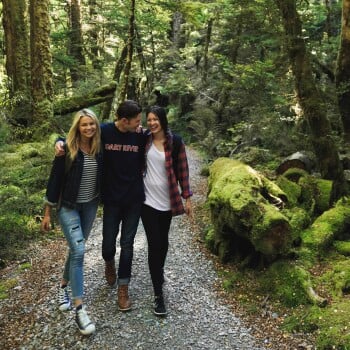- About Us
-
Trips
-
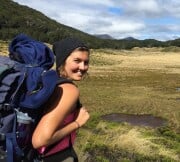 Kiwi-Style Hiking
Kiwi-Style Hiking
-
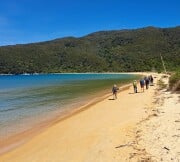 Great Walks
Great Walks
-
 Hiking Tours
Hiking Tours
-
Alpine Hikes
-
Custom Groups
- Huayhuash Trek
- Family Northern Explorer
- Family Southern Explorer
- Lake Waikaremoana Hike
- Women's Custom Tours
- Women's Southern Wilderness
- Coast, Canyons and Mountains
- Coastal Wanderer Custom Tour
- Don't Cross the Ladies
- Secret South Custom Tour
- Tekapo Hike
- West Coast Custom Tour
- World Heritage Custom Tour
-
- Blog
- Shortlist
- About Us
- Trips
- Blog
- Shortlist

Jul 5, 2024
What to do if you, or a loved one gets sick or injured in New Zealand?
Know the Risks
As with any other country, there are certain risks associated with being active outdoors, such as:
- sudden and dramatic changes in the weather
- sunburn
- getting lost (easily avoided by taking a guided trip with Hiking New Zealand)
- injury or illness
New Zealand is fortunate in that it doesn’t have any ‘wild’ animals or creatures that bite other than the odd feral child, spider, wasp or sandfly.
Despite best intentions, sometimes accidents or illness can befall anyone, so it’s best to be prepared before that happens so you know what to do, how to seek help and what services are available to assist.

Travel Insurance
Private travel insurance is essential to cover:
- medical treatment including doctor’s bills, medication and hospital care, if necessary (ensure you keep your receipts and check your insurance policy in case you need supporting documentation from your doctor)
- repatriation costs if you are too unwell to continue your travels
- theft
- cancellations or missed departures with costs incurred as a result
- extreme adventure – check that your insurance covers you for such activities, for example skiing, bungy jumping or whitewater rafting
- personal belongings, special equipment etc.
Note:
The public hospital system is free of charge for Australian, British (urgent treatment) and New Zealand citizens, provided you can survive the queue. Go for travel insurance and by-pass the wait.
If you are a UK citizen, there is an agreement between UK and NZ governments to help in an emergency, but this is more for Accident & Emergency type care and should not be relied upon instead of having travel insurance.
There is also a reciprocal health agreement between Australia and NZ, but the legalese is such that it is almost impossible to decipher even if you were the one who wrote it. To avoid having to hire a team of lawyers to rival that of the United Nations just to understand this agreement, it would be way simpler and easier to do the logical thing and arrange travel insurance.
General Health
Luckily you will encounter less harmful bugs here in New Zealand, like this Weta...
- Vaccinations aren’t required for visitors to New Zealand.
If you need a consultation visit:
- a General Practitioner (appointments are generally required, but there are a number of 24-hour surgeries in larger centres around the country where you can just drop by – take a good book as you may be there a while)
- any hospital emergency ward (there can be significant waiting times here too; avoid the waiting room magazines, who knows what bugs have been sneezed on them)
- a pharmacy (they may be able to give initial health advice, generally for no charge, but this is advice only)
- There are costs involved for visiting a health care professional (such as a GP), a 24-hour surgery or hospital A & E department, for non-injury related treatment (rules may be different for Australian and British citizens but it is not overly straight forward to determine). These costs can quickly escalate and soon go beyond what you would have paid for travel insurance. A visit to a GP generally starts at NZ$80 for a non-NZ citizen. And let’s not even discuss the cost of surgery….
- The cost of treatment for accidents is subsidised for all nationalities.
ACC
- If you’re injured during your visit to New Zealand the Accident Compensation Corporation (ACC) can help to pay for treatment and other support you may need if injured.
- Your treatment provider will fill out an ACC claim form for you, so ensure you get treatment for your injury as soon as possible.
- If you qualify for ACC, you’ll usually only have to pay for part of the medical practitioner’s normal fee as ACC pays the rest. If you have travel insurance, you may be able to claim back any amount you pay.
- While you remain in New Zealand, ACC may be able to continue to help with treatment or support, such as surgery, x-rays and prescription costs.
- In New Zealand it is not possible to sue third parties for accident damage or the costs of an injury because of this ACC cover.
- ACC does not replace the need to ensure you are adequately covered for other events by having a comprehensive travel insurance cover.
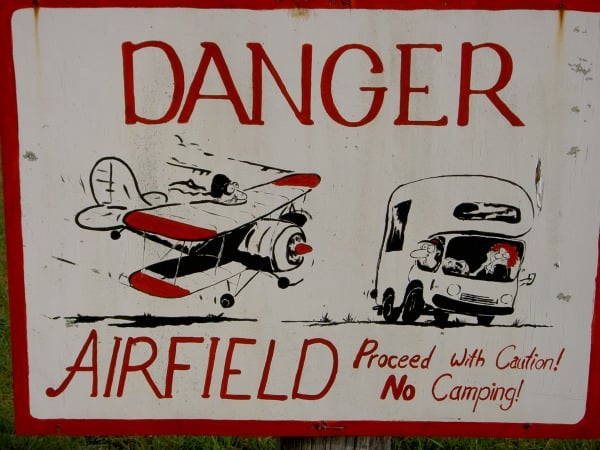
To stay safe always look where you are heading!
Emergency Services
New Zealand has a network of emergency services available to assist and help you:
- Call 111 for any police, fire, ambulance or rescue emergency.
- Ask for the nearest hospital or look for hospital road signs to visit an emergency ward. There are around 220 (public and private) hospitals in New Zealand. Avoid the private hospitals as they can only be accessed via referral, so instead go direct to a public hospital with A & E (or ED) facilities.
- There are also 205 St. John ambulance stations with over 600 vehicles. An ambulance is dispatched by dialing 111. Injury-related ambulance costs are covered by ACC but medical events are not. You will be asked to contribute towards the cost of an ambulance for non-injury related occurrences.
- Every region has its own search and rescue helicopter service with very skilled pilots and paramedics.
So, if you find yourself in a bit of strife, there are loads of people here in New Zealand set up to help you. For all emergencies, dial 111. For illness or injury less than life-threatening, just drop by a 24-hour surgery or visit a GP.
And then, there’s always travel insurance, with a network of advisors only a phone call away (or email, Facebook or Twitter) who are more than happy to offer help and advice and direct you to the nearest assistance.
Be safe and enjoy your travels!

